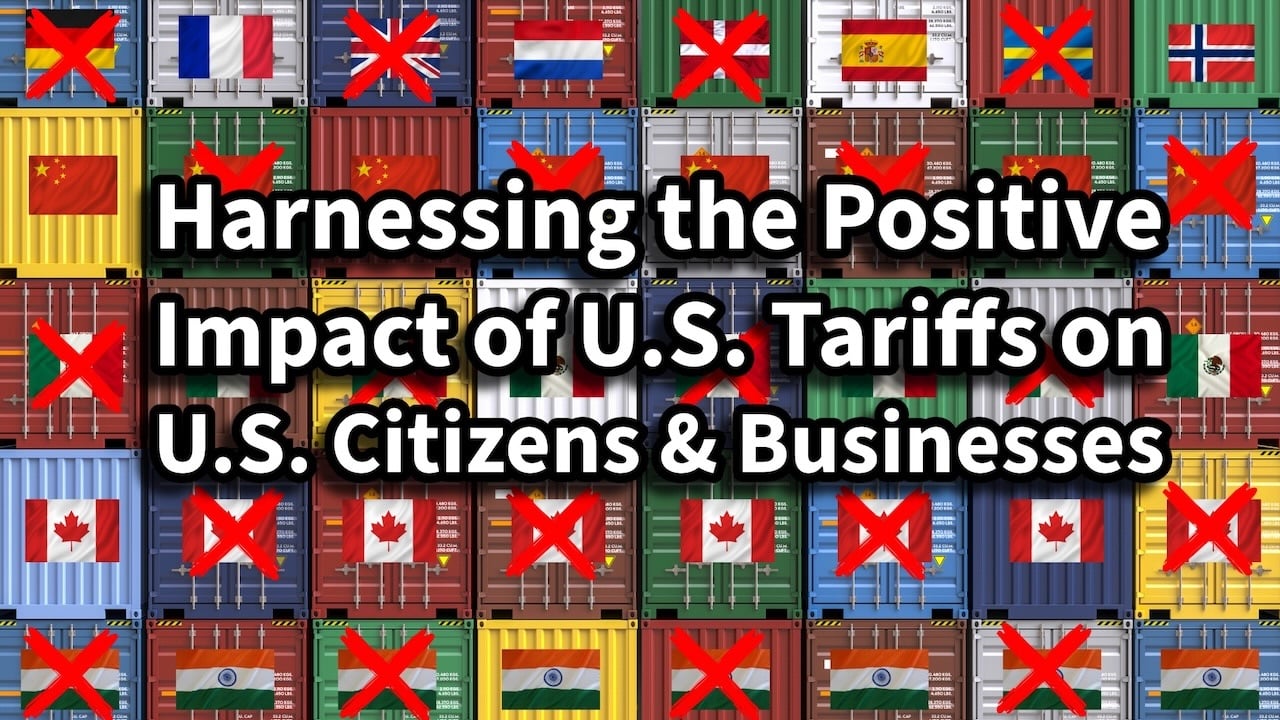How U.S. Tariffs Strengthen American Businesses, Jobs, and the Economy

Introduction
Tariffs, defined as taxes imposed on imported goods, have been a fundamental component of U.S. economic policy since the nation's inception. While debates surrounding their efficacy are ongoing, it's essential to recognize the potential benefits tariffs can offer to American citizens and businesses. This article explores ten positive outcomes of implementing tariffs, focusing on their role in bolstering the U.S. economy and national interests. Lets dive in...
- Strengthening Domestic Industries
- Job Creation and Economic Growth
- Enhancing National Security
- Reducing Trade Deficits
- Encouraging Fair Trade Practices
- Generating Government Revenue
- Supporting Social Programs
- Funding Infrastructure Development
- Promoting Technological Innovation
- Strengthening International Negotiation Positions
1. Strengthening Domestic Industries
By imposing tariffs on imported goods, domestic products become more competitively priced. This pricing advantage can lead to increased demand for U.S.-made goods, thereby supporting local manufacturers and producers. As noted by the Economic Policy Institute, tariffs can provide effective protection for domestic production in specific economic sectors, especially those harmed by unfair trade practices or critical for national security.
2. Job Creation and Economic Growth
A surge in demand for domestically produced goods often necessitates an expansion of the workforce. For instance, Eli Lilly's recent announcement to invest $27 billion in constructing four new manufacturing plants in the U.S. is a direct response to potential drug import duties. This investment is projected to create 3,000 high-skilled jobs and 10,000 construction jobs, exemplifying how tariffs can stimulate job creation and economic growth.
3. Enhancing National Security
Reducing reliance on foreign suppliers for essential goods is a strategic move to bolster national security. By encouraging domestic production through tariffs, the U.S. can ensure a stable supply of critical materials and products, minimizing vulnerabilities associated with global supply chain disruptions. The Economic Policy Institute emphasizes that tariffs can shield U.S. workers from unfair forms of competition and protect industries vital for economic or national security.
4. Reducing Trade Deficits
Tariffs can serve as a tool to address trade imbalances by discouraging imports and promoting exports. A reduced trade deficit can strengthen the national economy and improve the country's financial standing on the global stage. The Economic Policy Institute discusses how tariffs can complement a country's strong domestic policies to manage international economic imbalances.
5. Encouraging Fair Trade Practices
Tariffs can be leveraged to counteract unfair trade practices by foreign nations, such as dumping products at below-market prices or providing excessive subsidies to their industries. By imposing tariffs, the U.S. can encourage trading partners to engage in fairer trade practices, leveling the playing field for American businesses. The Economic Policy Institute notes that tariffs can shield U.S. workers from unfair forms of competition from specific trading partners with abusive labor rights regimes.
6. Generating Government Revenue
Tariffs serve as a source of income for the federal government. The revenue generated can be allocated to various national needs without increasing domestic taxes. Historically, tariffs were a major source of federal revenue in the U.S., especially before the establishment of the federal income tax.
7. Supporting Social Programs
The additional revenue from tariffs can be channeled into social programs such as Social Security, healthcare, and education. This funding can enhance the quality and reach of these services, directly benefiting American citizens. While the allocation of tariff revenue depends on governmental budgeting decisions, the potential exists for supporting social programs.
8. Funding Infrastructure Development
Investing in infrastructure is crucial for economic growth and public safety. Tariff revenues can provide the necessary funds for building and maintaining roads, bridges, and public transportation systems, leading to improved efficiency and quality of life. The Economic Policy Institute discusses how tariffs can be part of a strategic suite of policies supporting domestic economic sectors, which can include infrastructure development.
9. Promoting Technological Innovation
By protecting emerging industries from international competition through tariffs, domestic companies may have the opportunity to innovate and develop new technologies. This environment can foster research and development, leading to advancements that position the U.S. as a global leader in various sectors. The Economic Policy Institute highlights that tariffs can provide effective protection for domestic production in specific economic sectors, allowing them to grow and innovate.
10. Strengthening International Negotiation Positions
Tariffs can serve as a strategic tool in international negotiations, providing leverage to achieve favorable trade deals and agreements. By demonstrating a willingness to protect its economic interests, the U.S. can encourage other nations to engage in more equitable trade practices. The Economic Policy Institute notes that tariffs can be used to counteract unfair trade practices and act as leverage in negotiations.
Conclusion
While tariffs are often a subject of debate, it's important to acknowledge their potential benefits. From bolstering domestic industries and creating jobs to enhancing national security and generating government revenue, tariffs can play a pivotal role in strengthening the U.S. economy and safeguarding national interests. By focusing on these positive aspects, policymakers and citizens can better understand the multifaceted impact of tariffs on American society.
Bibliography
Economic Policy Institute. (2025, February 10). Tariffs—Everything you need to know but were afraid to ask. Retrieved from https://www.epi.org/publication/tariffs-everything-you-need-to-know-but-were-afraid-to-ask/
Eli Lilly plans to invest $27B to build four new US plants as tariffs loom. (2025, February 26). New York Post. Retrieved from https://nypost.com/2025/02/26/business/eli-lilly-plans-to-invest-27b-to-build-four-new-us-plants/
Brown University. (2025, February 3). Tariffs and the U.S. Economy: A Balanced Perspective. Retrieved from https://www.brown.edu/news/2025-02-03/tariffs
University of Chicago. (2025, February 10). What Effect Will Trump’s Tariffs Have on the U.S. Economy?. Retrieved from https://news.uchicago.edu/story/what-effect-will-trumps-tariffs-have-us-economy
PBS NewsHour. (2025, February 5). Analysis: The Potential Economic Effects of Trump’s Tariffs and Trade War in 9 Charts. Retrieved from https://www.pbs.org/newshour/economy/analysis-the-potential-economic-effects-of-trumps-tariffs-and-trade-war-in-9-charts

